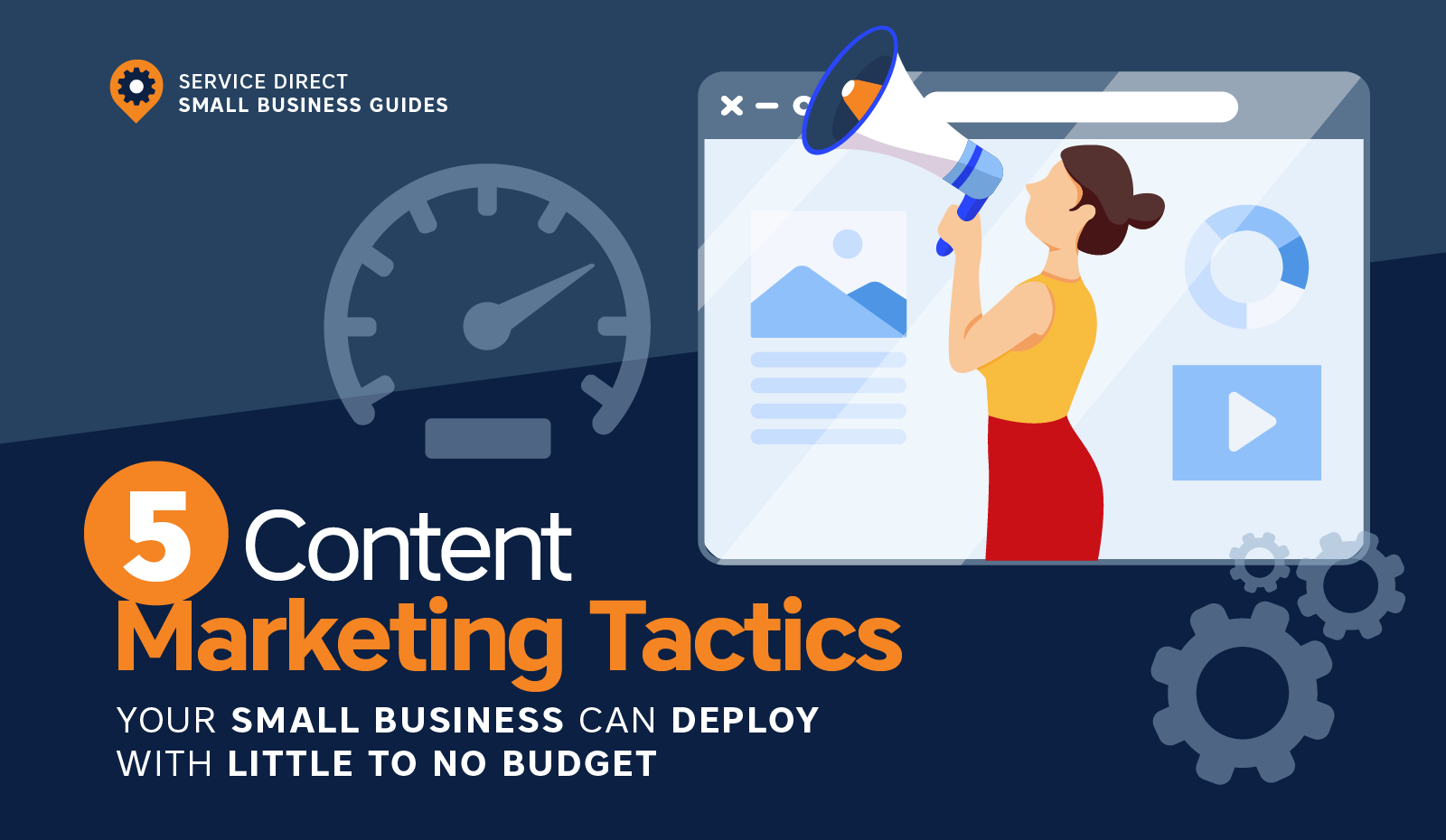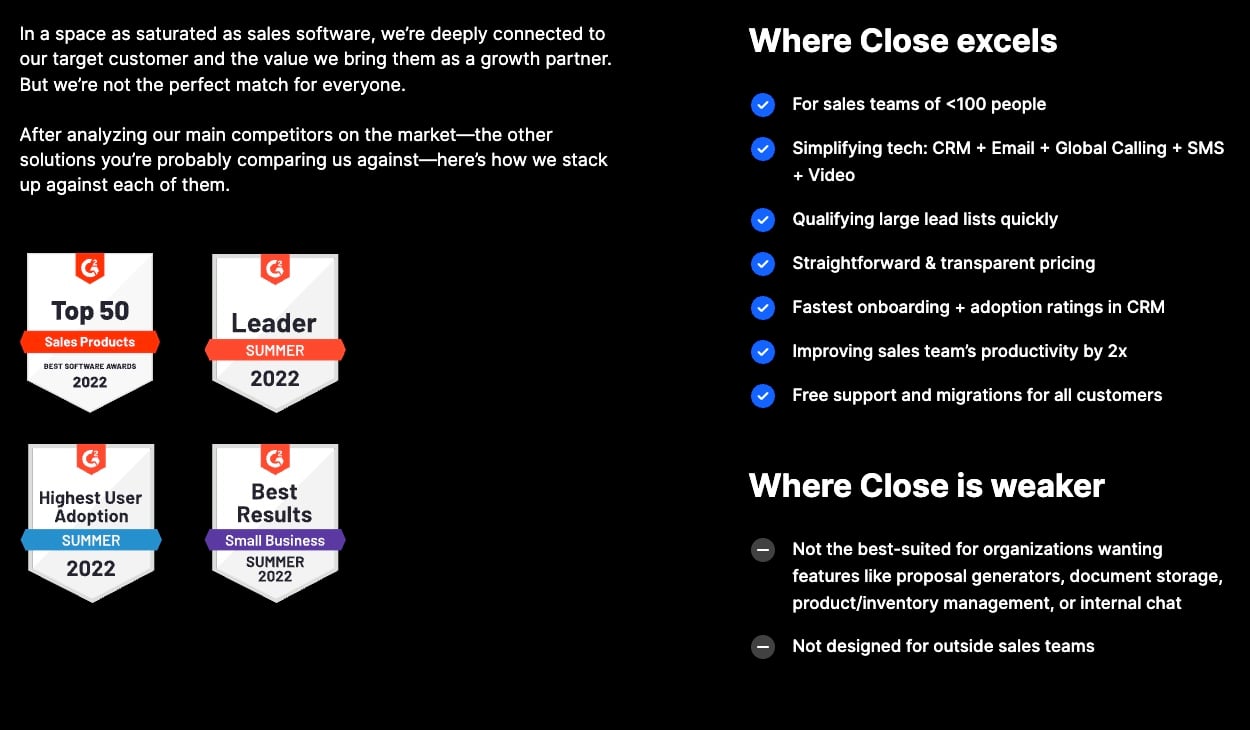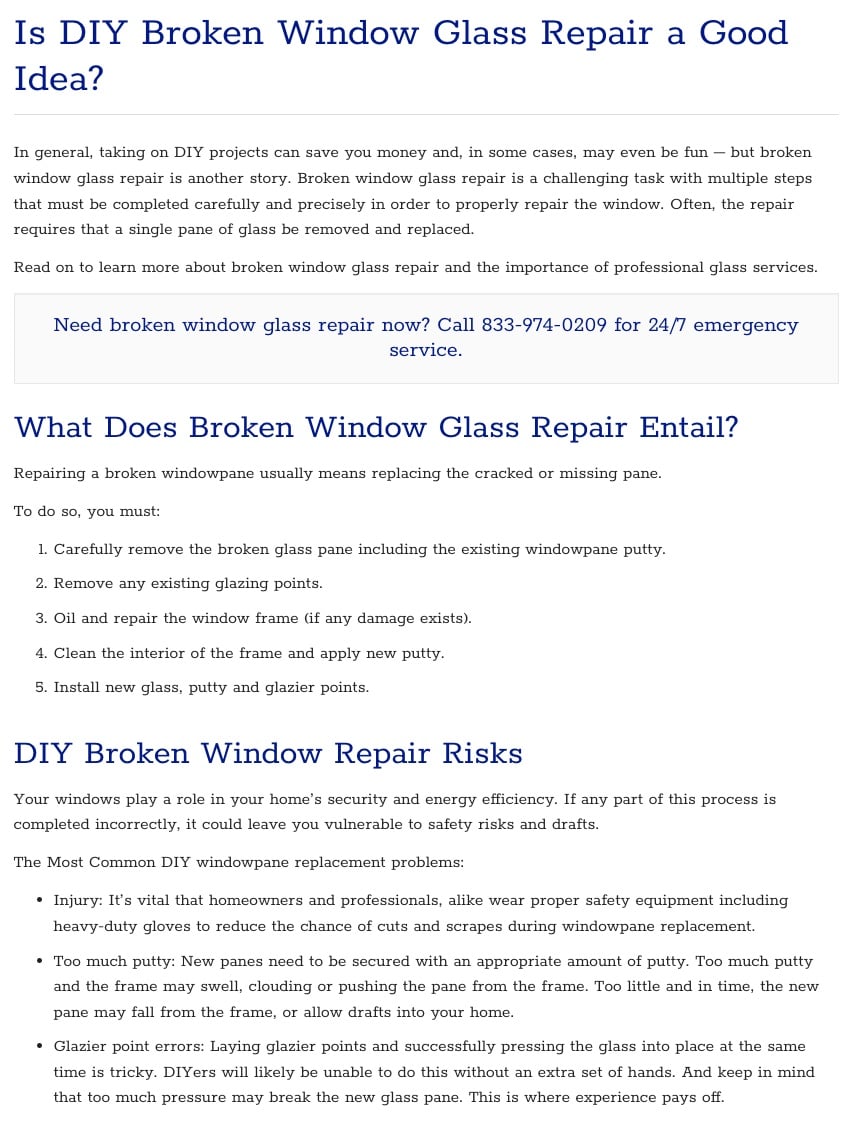5 Content Marketing Tactics Your Small Business Can Deploy With A Small Budget
When I first started working around content marketing and SEO, I was in a weird position.
I had just dropped out of a French medieval literature PhD at McGill University in Montreal (no opportunities there unfortunately) and I was looking for a job.
I was hired by a local call center providing SEO and Content Marketing Services to SMEs - often with low budgets.
This is how I learned to operate in tight environments.
A few years later, I’m the CEO of a content marketing agency (it’s called ScaleCrush - look it up :) ), and I still use what I learned in my humble beginnings.
The nature of running (and trying to grow) a small business is that you are always operating on a shoestring budget.
That’s certainly the case when it comes to finding ways to generate new customers.
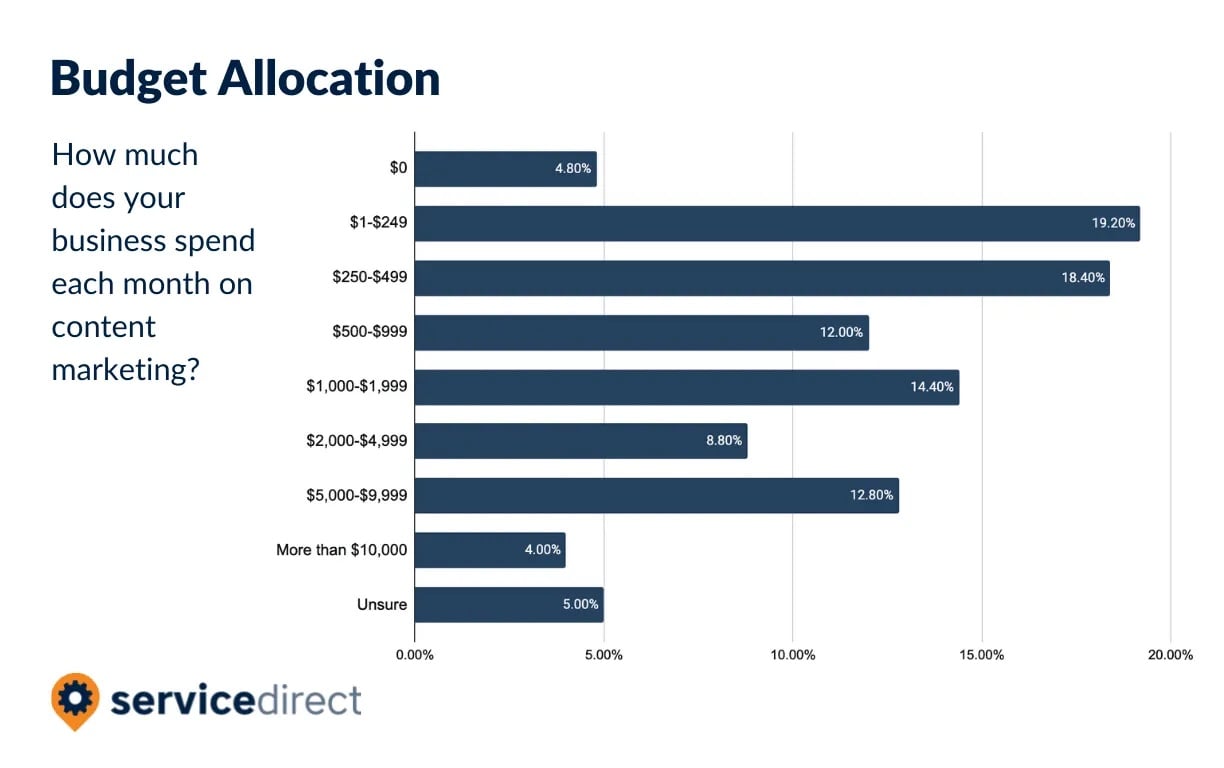
The Service Direct team recently surveyed small business owners about their content marketing efforts and learned that 54% of them spent less than $1,000 each month on their content marketing, while 42% spent less than $500 each month.
Despite the lack of resources small businesses are able to devote to content marketing, most have seen success with those efforts.
If you’re a small business looking to get new customers and you haven’t focused on content marketing, now is the time!
In this article, I’m going to lay out 5 tactics you can employ with little to no money that will help you attract, engage and convert new customers via content marketing.
What does low budget mean?
First of all, let’s clear the air: “low-budget” is a subjective judgment. Especially when it comes to content marketing. Some very skilled and highly specialized writers charge up to a dollar a word. Some others only a few cents per word.
In this article, I’ll use the term “low budget” to describe content marketing efforts around $1,000 per month.
That may already seem quite a high budget for some of you, and that’s fine. But content marketing is an expensive endeavor, and $1,000 is still quite low in our field.
Low budget environments are tough, but they are also rewarding. If you engage in content marketing on a low budget, you’ll learn a lot of things that you can then reuse in other areas of your small business.
Let’s dive in.
Tactic #1. Start with the basics: build a content marketing strategy
If you’re operating in a tight environment, you need to get the strategy right.
It may seem counterintuitive to start spending money on “intangible” things at first.
Some people may want to get started ASAP to get their content up and running.
But let me tell you this. Without understanding what you are trying to accomplish, how you will accomplish, etc. you are much less likely to find success with your content marketing strategy.
In fact, in the same survey mentioned above, the presence (or lack) of an actual documented strategy was one of the largest determining factors on whether or not respondents saw success with their content marketing efforts.
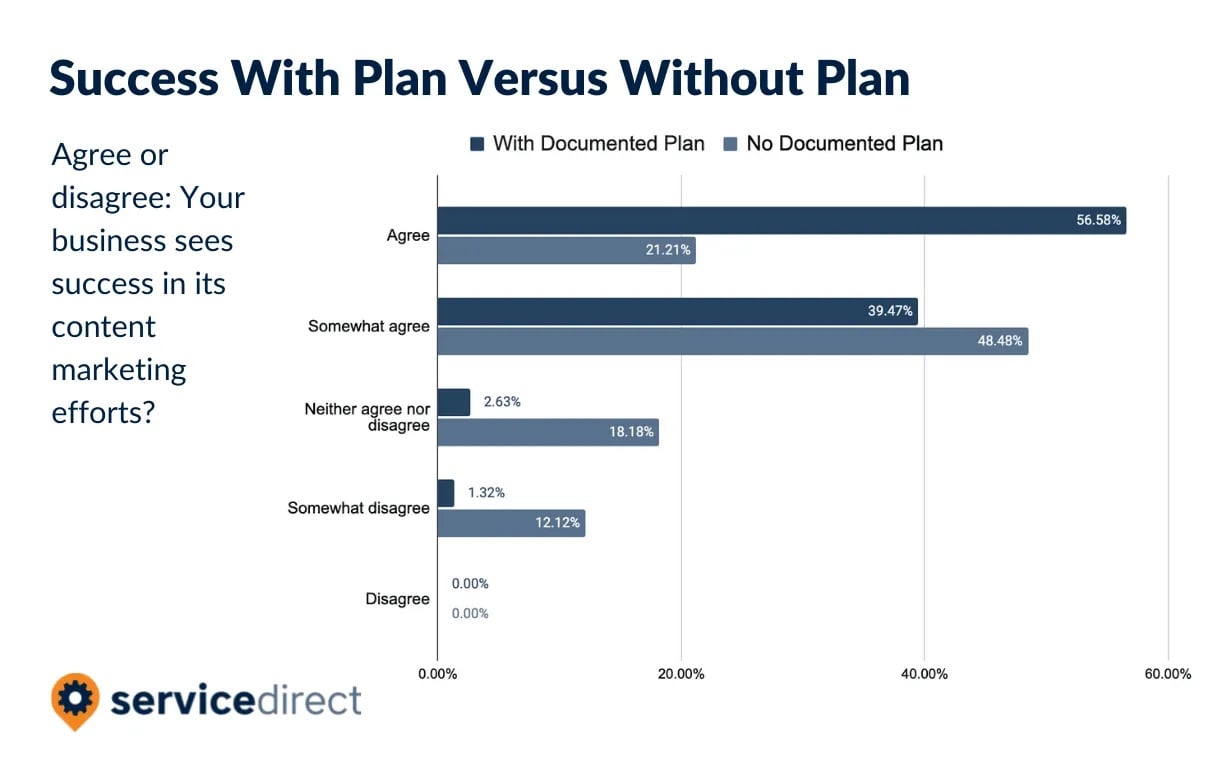
As you can see from the survey results above, respondents were more than twice as likely to agree with the statement that their content marketing efforts were successful if they had a documented content strategy.
If you are a small business that recognizes the importance of expanding your reach via content and you don’t have a large budget to do so, it’s absolutely imperative that you set yourself up for success.
That starts with putting together a plan!
The #1 thing to focus on at first is to define where you want to go, and how you’re going to get there.
A good content marketing strategy will tell you:
- What to do with your existing content
- What overarching topics your content should be focused on
- What content pieces to produce
Your strategy isn’t a calendar - no one cares when you get stuff on your website. People care about good content - not timely content.
So how should one go about building a strategy? This is where I recommend working with an experienced person. This person can be a consultant, a content strategist, or the team lead at an agency. This could cost you 2 or 3 months worth of budget, but it’ll be worth it, trust me.
Tactic #2. Write about prices
Ok, we’ve covered strategy, which I obviously had to do. Never go in blind, folks.
Now let’s look at an actual tactic: talking about prices.
This may again sound very counterintuitive to some of you to be so blunt about how you price, and why. But remember this: content marketing isn’t about you, it’s about your prospects.
Let’s picture a very familiar situation (it actually happened to me again yesterday). You’re hunting for a new piece of software that’s going to help you grow your business. It can be accounting software, HR software, email automation software - what have you.
In my case, it was a cash flow management software (no, I won’t name names).
You find a very promising software: it all looks good, features are on point, and you’re excited. You click on “Pricing”. And you’re presented with a form.
And the dreaded “Contact Us To Get a Detailed Quote”.
What do you do? You close the page, and move on. This is what happens when you try to hide prices from people. Price is what drives a commercial relationship, and talking about prices helps establish trust.
Tell people everything they want or need to know: how much it costs, why it costs that much, what actually drives the prices up or down, and how you stack up against competitors.
This is an essential part of the buying process, and so many companies fail to acknowledge that.
Do it, and you’ll be better off than 90% of the competition.
As an example, at Service Direct, we generate leads for local service businesses. While our pricing is ultimately determined by our clients, instead of offering a pointlessly large range of pricing or deploying a tactic like ‘leads starting at $9’, we provide potential customers with network-wide averages our clients are willing to pay.
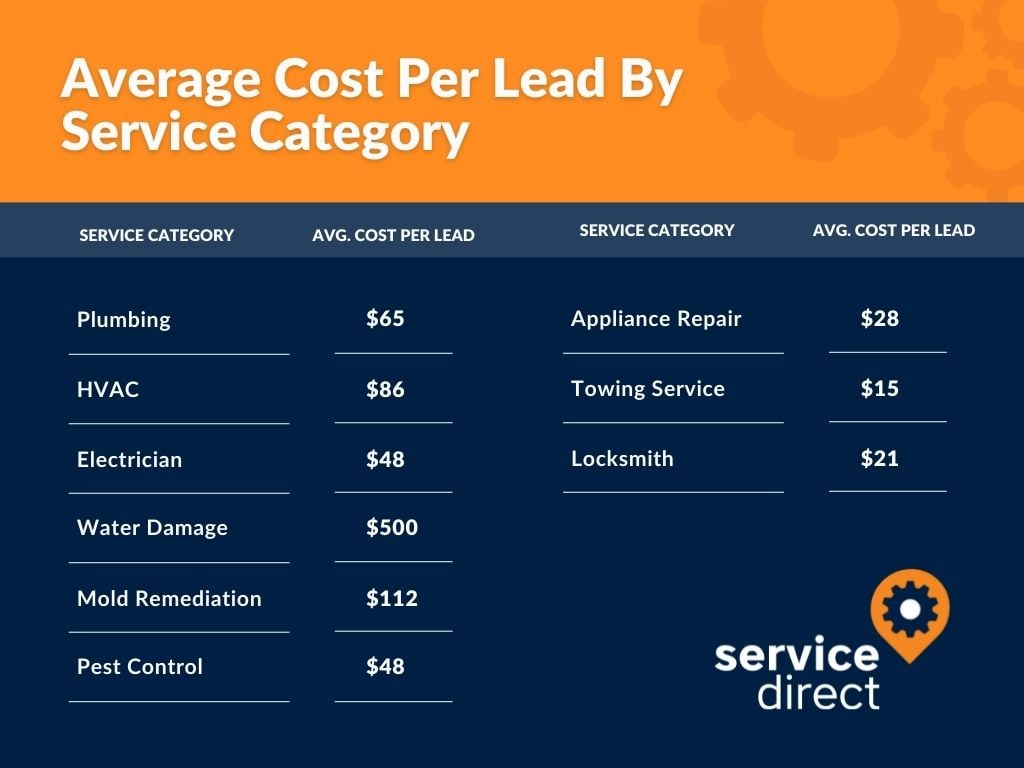
Tactic #3. Focus on your competitors
What else do people want to know about when they research your products or services? Competition.
Every company out there is saying “look at us, we’re the best”. People know you’re not. They don’t buy from you because you say “we’re the best”. They buy because they feel you’re the best choice for them.
“But Vince, this is crazy - why would I mention competitors on MY website?”
Simple answer: because people need it. The “competition” conversation is going to happen. People are going to look up competition - whatever you do or say. This is just natural.
So ask yourself this: when that conversation happens, should it happen with or without you?
It can take a while to get used to that idea. Now how should you go about this? It depends on your product or service.
One software company does this exceptionally well: close.com.
And they have comparison pages: “Close vs XYZ”.
The one thing you need to copy is their mindset.
They say “We’re biased, not ignorant.” Instant trust building. They’re not trying to fool you. They’re not trying to scam you.
They’re trying to help you. And if that means they’re not the right fit, so be it.
You can do the exact same thing - whatever your industry.
Tactic #4. Write about your products & services
Your products and/or services obviously need to be part of your content marketing strategy. But not in a “we’re the best, look at what we’ve built, it puts everyone else to shame” kinda vibe.
More in a “Here is your problem, and here is how we can help solve it. Here are also a few ways to solve it without us”.
Let’s imagine I have a broken window. I search for “repair broken window” in Google. In this case, I’m just trying to better understand how to solve my problem.
And this is what comes up from Glass Doctor:
Notice what they do here...specifically if your small business provides a service, you'll need to walk this same fine line.
They offer a paid service that can solve my problem. So while I'm searching for how to solve it, they help explain how to go about solving my problem. BUT! They also explain why it may be the case it makes more sense for me to hire them to do the work. That's a classic content marketing strategy you need to employ. In this case, they explain the risks of NOT hiring a professional. For some visitors, that's enough to convince them maybe it makes more sense to have Glass Doctor solve their problem.
Tactic #5: Answer ALL the questions
The #1 issue people face with content marketing is coming up with content ideas. To me, as a Content Marketing agency owner, it’s mind-boggling.
You’re in front of clients and prospects all day right? And during each and every one of these conversations, you answer questions.
Questions like:
- “What’s the difference between A and B?”
- When do you recommend we do X?
- Is it a good idea for us to invest in X or Y?
- Do you think we should do this now or wait until next quarter?
- Etc.
And chances are you feel frustrated because you’re having to educate people on the same topics, over and over again. If people need this information as part of their buying process, why not give it to them online?
Think of each question someone has as a content opportunity.
You know what they say in school: “Don’t be afraid to raise your hand. If you have a question, someone else has the same one”. This is the exact same thing.
If one prospect wants to know something, chances are a good chunk of your prospects need that information as well.
So make it readily available.
It can be “should I get a wired or wireless lawnmower?” or “should I get a broker for my insurance policy?”.
People need the info, and you can give it to them. Win/Win!
Conclusion: operating on a low budget isn’t that hard
As you’ve been able to read, I focused on tactics that you can implement today.
The information is already available:
- Pricing
- Competition
- Products/Services
- Common Questions
The most important thing when it comes to content marketing is your mindset.
You need to focus on people.
Not prospects, products, services, clicks, impressions, leads or sales.
People.
If you do it, and focus on building a relationship with them, I guarantee the budget doesn’t matter.
About the author
Vince is the Founder & CEO of ScaleCrush, one of the fastest growing SEO & Content Marketing agencies in France. He first started working with web content 10 years ago, and he’s never stopped since.

